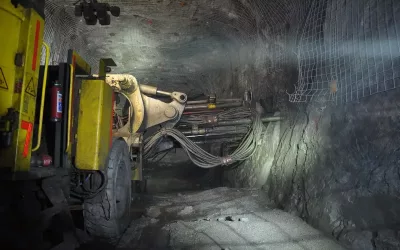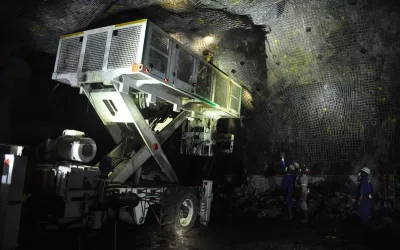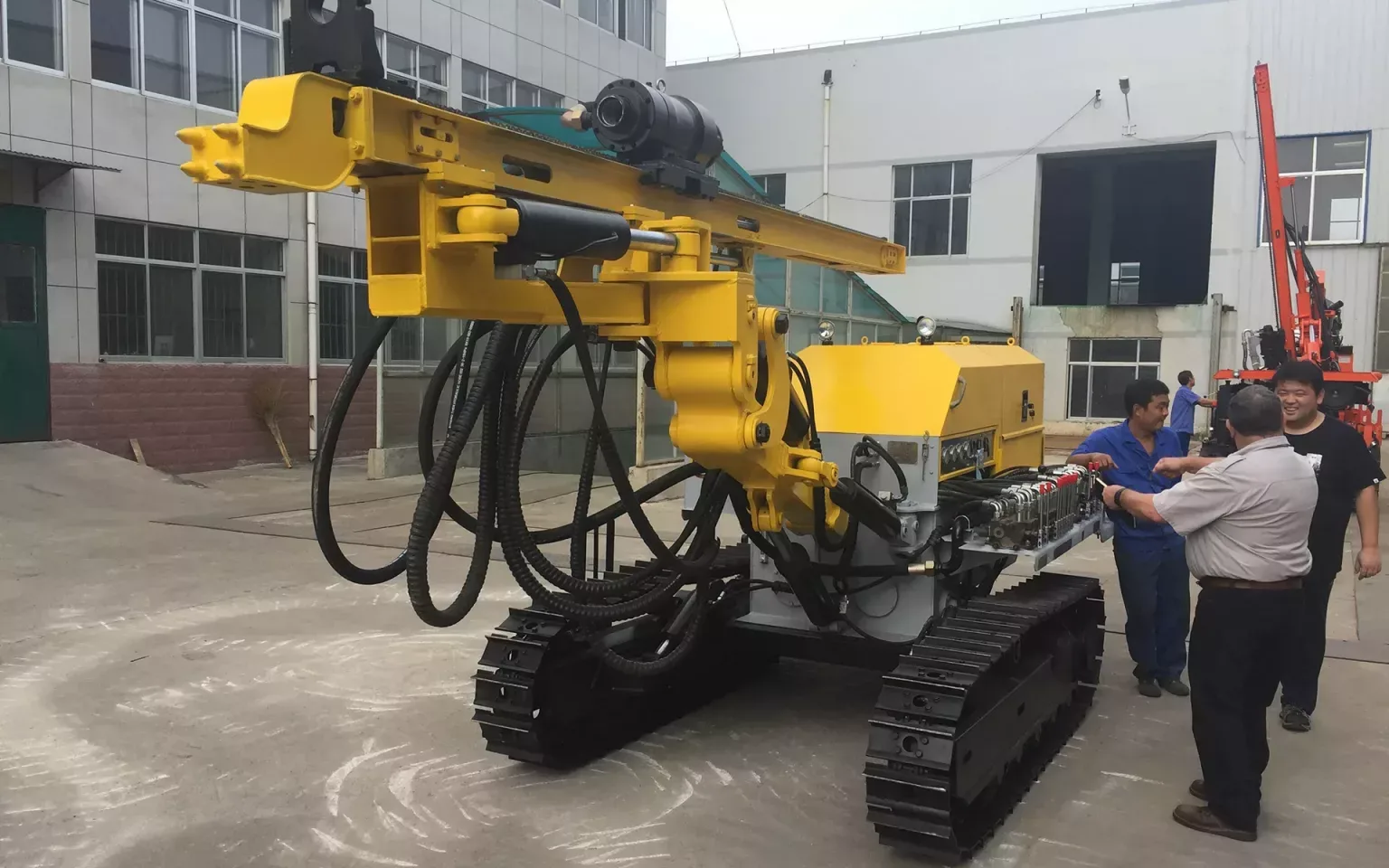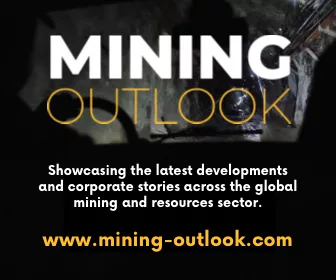We speak to Managing Director, Klaus Fischer, about Rhino Africa Mining Group’s trio of companies delivering quality contract and supply services to clients in Southern Africa.
THE BE(A)ST OF AFRICAN MINING
Africa is a mining mega-hub; copper, gold, diamond, and platinum deposits are only four of the vast swathe of key resources the continent boasts.
Across the pan-African mining sector, there are entities that play a critical role in facilitating mining services, from machinery provision and haulage to ore crushing and surface drilling.
Rhino Africa Mining Group (Rhino) is a mining specialist group of companies conducting operations in various areas of the industry, specifically in the contracting and supply services arena in Southern Africa. The group’s major operations arm is Newrak Mining (Pty) Ltd (Newrak), and its specialist operator arm is P2 Mining (Pty) Ltd (P2 Mining).
“We undertake small manganese mining operations in Zambia and maintain a consulting division in Mozambique,” introduces Klaus Fischer, Managing Director of Rhino. “We are dedicated to providing the mining industry in Southern Africa with professional, skilled services and products; our mission is to exceed the expectations of our clients and provide mining services that are safe and effective in exploiting their mineral resources.”
Rhino is the result of an amalgamation of businesses. The original founding company, RAK Mining and Construction CC (RAK), was formed in 1995 and has grown into a well-established mining contracting company. Since the introduction of the mining charter in 2002, RAK had sought various ways to help transform the business into one that ensured the full involvement and support of historically disadvantaged South Africans (HDSA).
The original aim of the company was to find a suitable Black Economic Empowerment (BEE) partner who could add value to RAK’s operations not merely by shareholding, but also by participating in the active management and growth of the new BEE company. RAK, now Newrak, has been and is operating as a volume contractor, mainly operating in and between the mine’s production sections under “evergreen”, working cost budget-based contract conditions.
“In 2004, Newrak was established through the assistance of the ABSA Group incubator fund, and is now operating as a 51 percent BEE and level four compliant mining contracting company,” Fischer tells us. “During its long period of existence, Newrak has operated in many areas and locations, applying its vast experience in various commodities and mining techniques around the country, including gold, platinum and chrome mines.”
RAK’s sister company P2 Mining, a subsidiary of Rhino, was established in 2009 for the mining of old and written-off reserve shafts and boasts a proven track record of operating full shafts. Today, P2 Mining has secured the management and operation of a chrome mine in the Eastern Limb of the Bushveld complex in South Africa. P2 Mining operates under its subsidiary P2 Mining BRL Special Purpose Vehicle (Pty) Ltd.
“We are dedicated to providing the mining industry in Southern Africa with professional, skilled services and products”
Klaus Fischer, Managing Director, Rhino Africa Mining Group
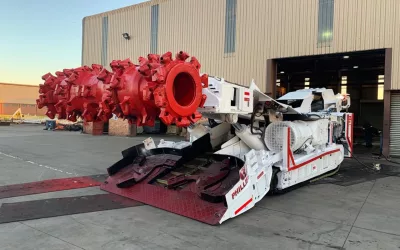
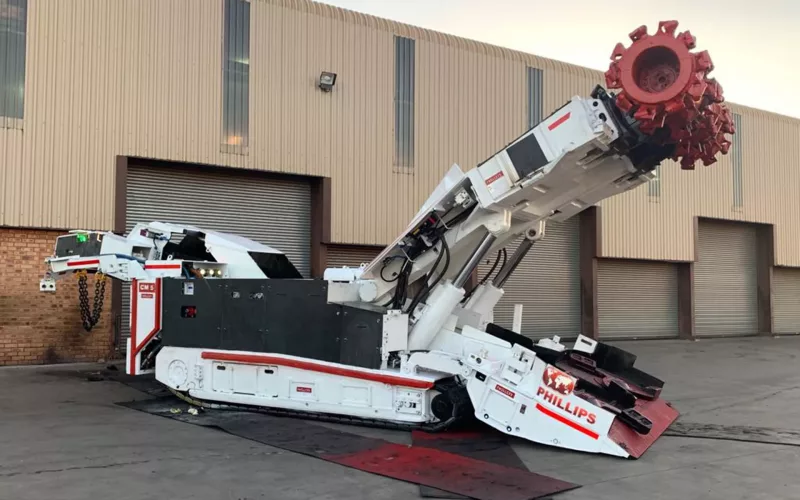
DTH DRILLING
For Rhino, there are two main focus areas that the group is confident will provide sustainability for its line of work. The first of these is its turnkey mining solutions; Rhino took over the management and operations of two marginal shafts in the Western Limb of the Bushveld complex from 2010 to 2019, until the remaining marginal reserves were completely extracted.
“This provided us with the knowledge, skills and expertise to roll out this business model to a chrome operation in the Eastern Limb, but in the opposite fashion,” explains Fischer. “After lockdown in 2020, we took over the management and operations of a chrome mine, where the surface reserves had been mined out and where the underground section was started up by a competitor.
“We took over the mining and further development and construction of underground and surface infrastructure, including surface workshops and underground declines, on an all-inclusive basis, including management, human resources, stores and materials, and engineering and maintenance.”
The second point of focus for Rhino is the establishment of a drilling division, albeit one that is relatively small compared to the larger specialised drilling competitors. Despite this, Rhino’s drilling operations take care of a niche gap in the market.
“Where the position, circumference and/or length of an ore pass, bunker, settler or ventilation hole is of such a nature that it is not feasible for conventional drop raising methods, or too expensive for blind hole boring, we utilise special down-the-hole (DTH) drilling equipment of a size which can be deployed in confined spaces, or which can be rapidly set up for drilling drop raise holes on surface,” Fischer says.
Examples of excavations successfully completed are 4.5-metre to seven-metre diameter underground bunkers and three-metre diameter settlers, surface ventilation holes for shallower chrome, platinum and coal mines, and intermediate lengths of ore passes too long for conventional drilling equipment, which also intersect geological features.
Rhino is currently in the process of setting up a DTH machine in an ultra-deep gold mine to drill and blast ore passes of 70-metre depth, which will shorten the time and reduce the cost for the development of such excavations considerably.
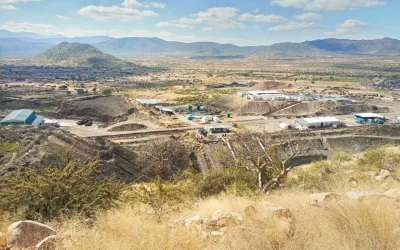
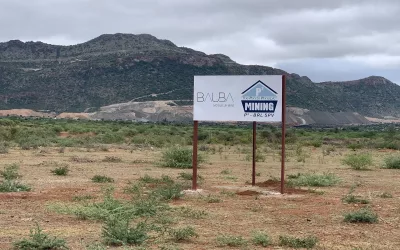
THE KEY ASSET
As a next step in the evolution of the business, Rhino is planning to potentially acquire any marginal or mothballed mining asset, which can be brought back into production quickly and with limited resources.
“In this regard, we have been part of the bidding process for a few assets in the past, albeit unsuccessfully,” Fischer tells us. “We are presently also part of a consortium of parties looking at various other assets in the coal, gold and chrome space and have conducted due diligence for a number of potential projects.”
On top of Rhino’s sights for acquisition, the company’s people remain at the core of its business. Rhino views its employees as the most valuable asset of the company and regards them as a team of experts. The team is empowered by their involvement within the business, through the supervision of their management, and collective production targets that keep them collaborating as a team.
All of Rhino’s employees participate in bonus schemes; exceptional performance is rewarded with recognition tokens and, where the skill set allows it, promotion.
“Where regulatory qualifications for future advancement are required, we encourage and assist potential candidates to pass the required exams, as we strongly believe that promotion should come from within. This ensures that our heads of department (HODs) and supervisors have a different mindset,” Fischer says.
“To assist management to ensure that all labour issues are handled in accordance with best labour practices, we have a very passionate and professional human resources (HR) department at everyone’s disposal.”
Whilst emerging from the aftermath of the COVID-19 pandemic some 18 months ago, with the accompanying financial strain of guiding a workforce of over 2,000 through it, Rhino’s key priority is to recover some of the financial losses incurred over the period by instilling a culture of continuous improvement in all facets of the business.
Taking the above into account, projects requiring a high labour component with relatively low margins will be reduced, and increased focus will be given to projects with a higher degree of mechanisation, as well as growing the drilling division.
Lastly, acquiring a resource asset, or even a possible merger with a resource owner who needs a company to operate the asset, will be pursued.
